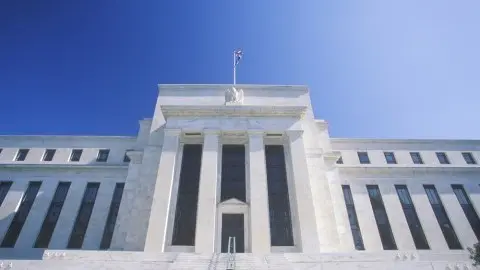June economic update: Monetary policy to the rescue
Financial markets are clamouring for policy stimulus as trade tensions and worries about global growth mount. Optimism that China and the US will settle their issues this month is fading fast, and it looks increasingly likely that central bankers will bow to both political and market pressure for rate cuts.
Monetary policy to the rescue
Financial markets are clamouring for policy stimulus as trade tensions and worries about global growth mount. Optimism that China and the US will settle their issues this month is fading fast, and it looks increasingly likely that central bankers will bow to both political and market pressure for rate cuts. However, we expect any easing to stop short of current market expectations. This may result in further equity market weakness and a renewed inversion in the yield curve before a trade agreement is eventually signed.
Recent US data suggests the economy is becoming less resilient to the negative trade headlines and the Federal Reserve is signalling moving in the direction of policy easing. This is fuelling market expectations of aggressive stimulus – in line with President Trump’s demands for 100 basis point of rate cuts. We think precautionary 50bp rate cuts from the Fed are likely.
Neither China nor the US seem willing to back down right now and it looks as though trade tensions will escalate further. But in the end, we believe President Trump wants to get re-elected and a deal will be done. After all, lower interest rates can only do so much to support the equity market (and Trump’s perceived re-election chances) if the core problem – trade – isn’t dealt with and global growth deteriorates further.
In China, we think the authorities will increase fiscal stimulus, as well as cut interest rates and the reserve requirement ratio (RRR) to support growth, in what is a difficult environment for Chinese companies in the trade and technology sectors.
Some of the green shoots we observed last month in the eurozone might be nipped in the bud if the trade war continues to escalate. The initial figures for the second quarter are mixed, though it’s too soon to pencil in a stalling of the recovery. While the European elections were basically a non-event, the political risk in Italy is rising again. Slowing growth and declining inflation expectations have forced the European Central Bank to introduce an easing bias in its communication. The path forward now looks open for a rate cut in the coming months.
Boris Johnson is odds-on to become the next UK prime minister, prompting concern that he could push for a ‘no-deal’ Brexit. But a new leader will face the same hurdles as Theresa May, and parliament would likely trigger an election if a ‘no-deal’ is imminent. In the meantime, the uncertainty will continue to keep a lid on economic growth.
Japan’s 1Q19 GDP was an impressive 2.2%, but the details behind that growth are far less impressive, and growth in 2Q and beyond could struggle. With the Fed looking more dovish, the Bank of Japan will be looking anxiously at the USD/JPY rate, and wishing it had some effective tools left in its monetary arsenal. Unfortunately, it has none.
The drop in US interest rates has undermined the dollar. If this is the start of the long-awaited dollar decline, we expect it will be USD/JPY that leads the charge. Macro-political challenges in Europe mean that EUR/USD will struggle to better the 1.15 level.
On market rates, one of the nuances that we identify is the likelihood that the Fed under-delivers on the market rate cut expectations. This could force long rates lower as the disappointment on the extent of the delivery of cuts prompts investors to switch out of risk assets into Treasuries, which still offer a positive yielding risk free rate.
ING Global Forecasts
Tags
June monthly updateDownload
Download report
14 June 2019
In case you missed it: The ‘Powell put’ This bundle contains 9 articles"THINK Outside" is a collection of specially commissioned content from third-party sources, such as economic think-tanks and academic institutions, that ING deems reliable and from non-research departments within ING. ING Bank N.V. ("ING") uses these sources to expand the range of opinions you can find on the THINK website. Some of these sources are not the property of or managed by ING, and therefore ING cannot always guarantee the correctness, completeness, actuality and quality of such sources, nor the availability at any given time of the data and information provided, and ING cannot accept any liability in this respect, insofar as this is permissible pursuant to the applicable laws and regulations.
This publication does not necessarily reflect the ING house view. This publication has been prepared solely for information purposes without regard to any particular user's investment objectives, financial situation, or means. The information in the publication is not an investment recommendation and it is not investment, legal or tax advice or an offer or solicitation to purchase or sell any financial instrument. Reasonable care has been taken to ensure that this publication is not untrue or misleading when published, but ING does not represent that it is accurate or complete. ING does not accept any liability for any direct, indirect or consequential loss arising from any use of this publication. Unless otherwise stated, any views, forecasts, or estimates are solely those of the author(s), as of the date of the publication and are subject to change without notice.
The distribution of this publication may be restricted by law or regulation in different jurisdictions and persons into whose possession this publication comes should inform themselves about, and observe, such restrictions.
Copyright and database rights protection exists in this report and it may not be reproduced, distributed or published by any person for any purpose without the prior express consent of ING. All rights are reserved.
ING Bank N.V. is authorised by the Dutch Central Bank and supervised by the European Central Bank (ECB), the Dutch Central Bank (DNB) and the Dutch Authority for the Financial Markets (AFM). ING Bank N.V. is incorporated in the Netherlands (Trade Register no. 33031431 Amsterdam).
